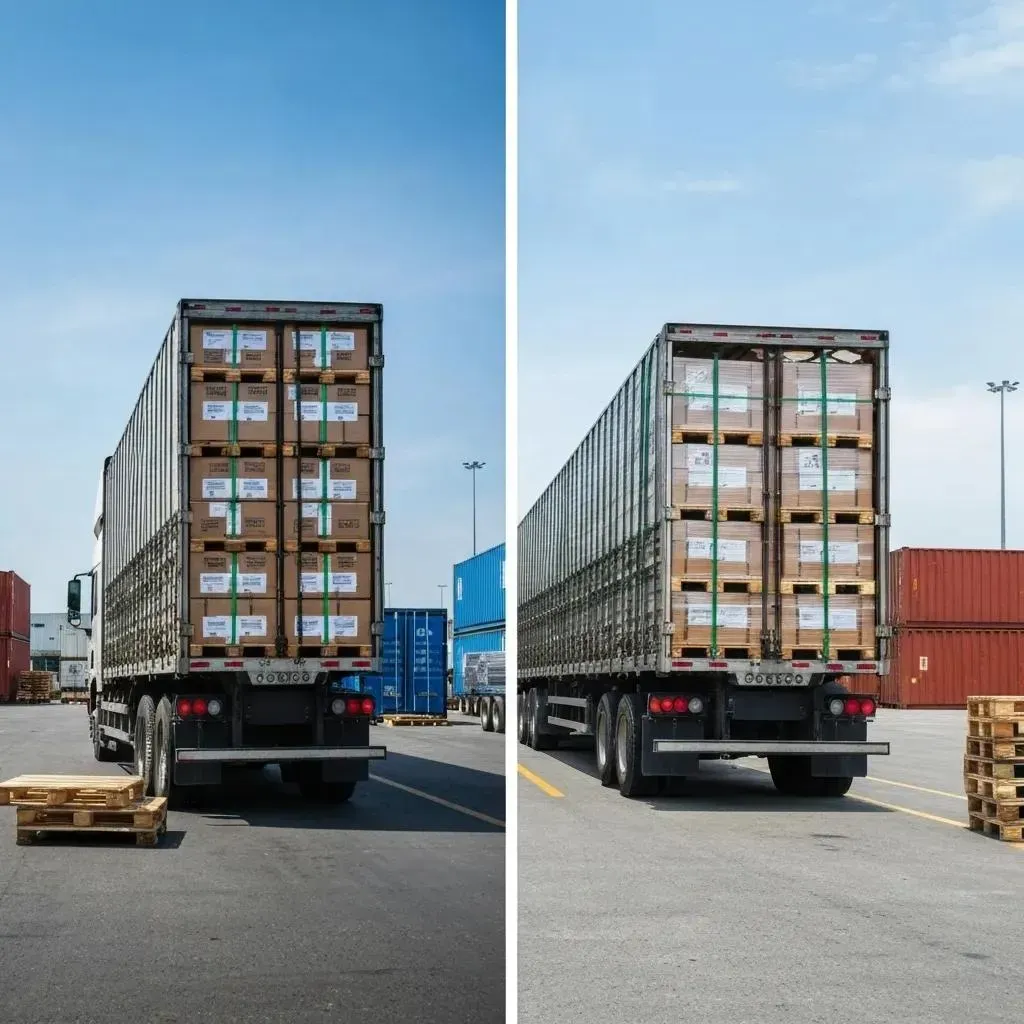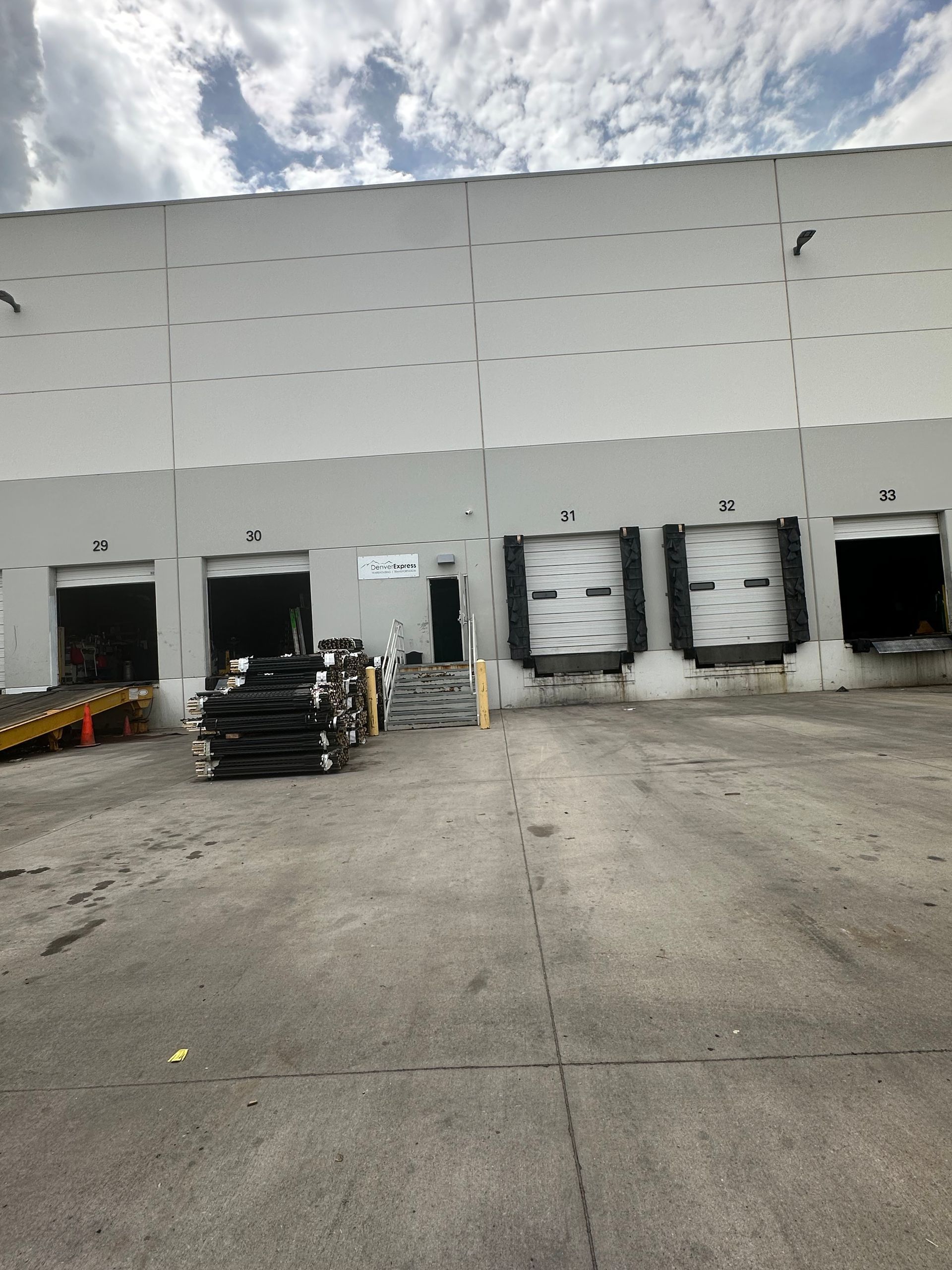Accessorial Fees Guide | Avoid Freight Surcharges Denver
Demystifying Accessorial Fees: Understanding Detention, Layover, Reconsignment & How to Sidestep Freight Surcharges

Did you know that unexpected charges can eat up as much as 35 percent of your total shipping budget? Accessorial fees cover all costs beyond the base freight rates, and getting a handle on them is key to predictable logistics expenses. In this guide, we’ll break down the main accessorial charges, dive into detention, layover, and reconsignment fees, look at current trends in the Colorado Front Range, and share practical ways—backed by Denver Express Co. – Premier Logistics and Warehousing Solutions—to steer clear of costly freight surcharges.
Understanding Accessorial Charges in Freight Shipping
Accessorial charges are extra fees carriers tack on for services that go beyond standard pickup and delivery, potentially inflating your base freight bill by 10–35 percent. These fees cover additional tasks like help with loading, using special equipment, or waiting time.
This source offers a solid overview of accessorial charges, setting the stage for our discussion.
What Exactly Are Accessorial Fees and Why Do They Matter in Freight Shipping?
Accessorial fees are additional charges carriers apply for services or delays that fall outside the usual pickup and delivery scope. They're important because unexpected fees can shrink your profits, make budgeting a headache, and strain your relationships with carriers.
How Are Accessorial Fees Defined in Trucking and Logistics?
An accessorial fee is any extra cost for services like assistance with loading, using specific equipment, or waiting time that exceeds agreed-upon terms. These fees compensate carriers for extra labor, specialized gear, or disruptions to their schedules.
Which Common Accessorial Charges Can Impact Your Shipping Costs?
Key accessorial charges to watch out for include:
- Detention: Fees for waiting longer than the allotted free time at pickup or delivery points.
- Layover: Fixed daily charges for overnight delays when equipment needs to stay at a yard.
- Reconsignment: Costs incurred when you need to change a shipment's delivery destination while it's already en route.
- Lumper: Fees paid to third-party workers for unloading services.
- Liftgate Service: Charges for using a hydraulic lift at locations without a loading dock.
- Truck Ordered Not Used (TONU): Penalties applied when a carrier is booked but the load isn't ready or used.
- Residential Delivery: Extra charges for deliveries made to homes.
- Fuel Surcharge: A variable fee that adjusts based on current fuel prices.
These fees can add a significant 10–35 percent to your base freight bill.
How Do Accessorial Fees Affect Businesses in the Colorado Front Range?
Companies in Denver, Boulder, and Colorado Springs often grapple with unpredictable warehouse and port delays, seasonal weather disruptions, and equipment scarcity. These factors can trigger accessorial charges that disrupt cash flow and complicate financial planning.
How Does Denver Express Co. Help You Manage Accessorial Fees?
Denver Express Co. streamlines operations by integrating route optimization, dock scheduling, and real-time shipment tracking to cut down on wait times and prevent extra charges. Our proactive communication with carriers and shippers ensures everyone is clear on loading windows and equipment needs—helping Front Range clients reduce average accessorial spending by up to 20 percent before fees even accrue.
What Are Detention Fees and How Can You Avoid Them?

A detention fee is essentially compensation for carriers when they have to wait beyond the agreed-upon free time at a loading dock. This fee protects carrier revenue when shippers or receivers cause delays in the loading or unloading process.
Understanding Detention Fees in Trucking
Detention fees are charges levied when shippers or receivers hold trucks longer than the allowed free time for loading or unloading. These fees compensate drivers for lost time and can range from $25 to $100 per hour.
This source clearly defines detention fees and their impact, directly relevant to our section on this topic.
What Causes Detention Fees During Freight Pickup and Delivery?
Detention fees typically result from:
- Poorly managed appointment scheduling at the origin or destination.
- Extended loading/unloading times due to insufficient staffing.
- Errors in documentation that delay the release of freight.
- Congestion at busy distribution centers.
These delays directly lead to carrier charges.
How Are Detention Fees Calculated and What Are the Typical Costs?
Detention fees usually kick in after two free hours and can range from $25 to $100 per hour, depending on the carrier's policies and the type of equipment used.
| Service Type | Free Time Included | Hourly Rate |
|---|---|---|
| Full-Truckload (Dry) | 2 hours | $50 – $75 |
| Refrigerated | 1.5 hours | $60 – $90 |
| Hazardous Materials | 1 hour | $75 – $100 |
Keep in mind these rates can vary based on the specific market and your contract with the carrier.
What Strategies Can Reduce Detention Delays and Fees?
To effectively avoid detention fees, businesses should:
- Confirm loading and unloading appointments at least 48 hours in advance.
- Ensure your dock crew is well-trained and adequately staffed to speed up handling.
- Double-check that your Bill of Lading details are accurate to prevent paperwork delays.
- Maintain open communication with carriers, providing live updates on shipment status.
Consistently applying these practices significantly cuts down on unnecessary waiting time.
How Does Denver Express Co. Minimize Detention Charges for Clients?
Denver Express Co. utilizes predictive scheduling software to synchronize dock availability with carrier ETAs. Our dispatch coordinators actively monitor real-time statuses and can reroute equipment if delays arise. This systematic approach has helped regional retailers trim detention costs by an average of 15 percent within six months.
What Are Layover Charges and How Do They Differ from Detention Fees?

A layover charge is a set daily fee applied when freight equipment stays at a yard overnight or for extended unproductive periods, whereas detention fees are calculated hourly after the initial free time runs out.
What Is a Layover Fee and When Is It Applied?
A layover fee is charged when a carrier’s trailer or container is held at a shipper’s or receiver’s yard beyond the carrier’s specified timeframe—often overnight. Typical layover rates fall between $200 and $500 per calendar day.
Understanding Layover Fees in Trucking
Layover fees are assessed when freight equipment remains in yard custody overnight or for extended durations. Typical layover rates range from $200 to $500 per calendar day.
This source provides a clear explanation of layover fees, directly relevant to our section on these charges.
How Do Layover Charges Impact Supply Chain Efficiency?
Overnight layovers tie up valuable rolling stock, reduce available capacity, and increase costs associated with idle equipment. They also complicate planning for subsequent-day deliveries and create scheduling conflicts for labor.
What Are the Key Differences Between Layover and Detention Fees?
| Charge Type | Trigger Condition | Billing Unit | Typical Rate |
|---|---|---|---|
| Detention | Waiting beyond free loading hours | Hour | $25 – $100 per hour |
| Layover | Equipment held overnight or longer | Day | $200 – $500 per day |
How Can Businesses Prevent Layover Charges?
Effective prevention strategies include:
- Aligning delivery windows to avoid needing yard access after business hours.
- Coordinating with carriers to request same-day drop-and-hook services whenever possible.
- Securing pre-booked yard slots for any known overnight holds.
These practices help keep equipment moving and off the carrier’s clock.
What Is a Reconsignment Fee and How Does It Affect Freight Costs?
A reconsignment fee covers the administrative and operational expenses involved in redirecting or rerouting a shipment after it has already entered the carrier’s network. This fee serves as a deterrent against last-minute destination changes.
Understanding Reconsignment Fees
Reconsignment fees cover the cost of redirecting a shipment after it has entered the carrier’s network. These fees commonly range from $75 to $250 per event.
When Does a Reconsignment Fee Occur in Freight Shipping?
Reconsignment charges apply when shippers request a new delivery address, need to hold freight at an intermediate facility, or split a shipment while it’s in transit. Even minor address adjustments en route can trigger this fee.
How Much Does Reconsignment Typically Cost?
Reconsignment fees commonly range from $75 to $250 per event, depending on the distance to the new destination and the carrier's specific rate structure.
What Are the Best Practices for Managing Destination Changes?
To effectively manage reconsignment costs:
- Always finalize delivery addresses before tendering the shipment to carriers.
- Utilize centralized shipment portals that offer real-time address validation.
- If unavoidable, bundle address changes into single reconsignment requests to minimize fees.
Proactive planning significantly reduces the likelihood of unexpected rerouting costs.
How Does Denver Express Co. Support Reconsignment Fee Management?
Denver Express Co. provides an agile shipment management platform that locks in final addresses at the time of booking and offers instant approvals for any necessary changes in destination. This system has helped local manufacturers reduce reconsignment instances by 30 percent.
What Are Other Common Freight Surcharges and How Can They Be Managed?
Beyond detention, layover, and reconsignment, several other surcharges can impact your per-shipment costs.
What Are Lumper Fees and When Are They Charged?
Lumper fees are paid to third-party laborers who unload freight at warehouses that don't have their own in-house crews. These charges typically range from $75 to $150 per shipment, depending on the number of pallets and the complexity of the handling required.
How Do Liftgate Service and Inside Delivery Fees Work?
Liftgate service fees cover the use of a hydraulic lift at locations that lack dock access, usually costing $25–$75 per delivery. Inside delivery surcharges, often ranging from $50–$125, cover the cost of moving freight from the curb into the building's interior spaces.
What Is TONU (Truck Ordered Not Used) and How Can You Avoid It?
TONU fees penalize the shipper when a carrier is dispatched but the load isn't ready or used—common rates are $250–$400 per instance. To prevent TONU, confirm live bookings within two hours of dispatch and always cancel through official carrier portals to avoid disputes.
How Do Residential Delivery and Fuel Surcharges Affect Shipping Costs?
Residential delivery premiums can range from $20 to $100 per shipment, reflecting the extra handling and potential restrictions in residential areas. Fuel surcharges fluctuate weekly based on industry indices and can add an additional 5–15 percent to the base freight rate.
How Can Colorado Businesses Minimize Accessorial Fees and Optimize Shipping Costs?
Reducing supplemental logistics charges not only improves cash flow but also strengthens relationships with carriers throughout the Front Range.
What Communication Strategies Can Reduce Unexpected Fees?
Clear documentation of pickup and delivery windows, providing real-time ETA updates, and pre-releasing billing details ensure carriers arrive prepared and minimize potential delays.
How Does Accurate Shipment Documentation Help Avoid Charges?
A precise Bill of Lading that includes complete commodity descriptions, accurate package counts, and any special instructions is crucial for preventing hold-ups that can lead to detention or reconsignment costs.
Why Is Dock Scheduling Critical to Preventing Detention and Layover?
Coordinated dock scheduling ensures carrier arrival times align with available labor and yard space, effectively eliminating unnecessary waiting periods and overnight holds.
How Can Carrier Negotiations Lower Accessorial Charges?
Negotiating specific free-time allowances and setting cap rates for detention, layover, and reconsignment directly within your carrier contracts can significantly limit your exposure to these surcharges.
What Role Does Denver Express Co. Play in Proactive Fee Management?
Through customized rate negotiations, predictive scheduling, and a dedicated client portal, Denver Express Co. empowers Colorado shippers to anticipate potential fee triggers and maintain transparent, controlled logistics expenses.
What Are the Industry Trends and Statistics on Accessorial Fees?
Staying informed with up-to-date market insights helps businesses benchmark their shipping expenditures and establish realistic budgets.
Accessorial Charges and Industry Trends
Accessorial surcharges can account for 10–35 percent of total freight spending, with detention being the most frequent cost driver. Detention fees appear on over 70 percent of freight invoices.
How Much Do Accessorial Fees Typically Add to Shipping Costs?
Accessorial surcharges can constitute 10–35 percent of total freight spend, with detention being the most frequent cost driver.
What Are the Most Prevalent Accessorial Fees in the Trucking Industry?
Detention fees are found on over 70 percent of freight invoices, followed by fuel surcharges (60 percent) and lumper fees (45 percent).
How Do Supply Chain Disruptions in Colorado Influence Accessorial Charges?
Seasonal weather events, regional labor shortages, and equipment bottlenecks in areas like Denver and Colorado Springs can increase detention and layover occurrences by up to 20 percent during peak periods.
Why Is Transparency Crucial in Managing Freight Surcharges?
Clear, itemized billing and upfront carrier policies build trust, aid in predicting cash flow, and prevent disputes over unexpected charges.
Where Can You Find More Resources and Tools to Understand Accessorial Fees?
Practical tools and expert support can guide shippers toward strategies for fee-free shipping.
How Can You Use an Accessorial Fee Calculator to Estimate Costs?
An accessorial fee calculator allows businesses to input details like free-time allowances, equipment types, and hourly rates to forecast potential surcharge exposure before tendering shipments.
What FAQs Can Answer Common Questions About Freight Accessorial Charges?
Dedicated knowledge hubs compile definitions, cost ranges, and prevention tips for every major accessorial fee, streamlining your decision-making process.
How Can You Contact Denver Express Co. for Customized Logistics Solutions?
For personalized support on fee optimization and rate negotiation, reach out to Denver Express Co. – Premier Logistics and Warehousing Solutions through their website or direct consultation line.
Partner with Denver Express Co. to gain control over hidden logistics costs, boost operational efficiency, and secure reliable freight services across the Colorado Front Range.




















